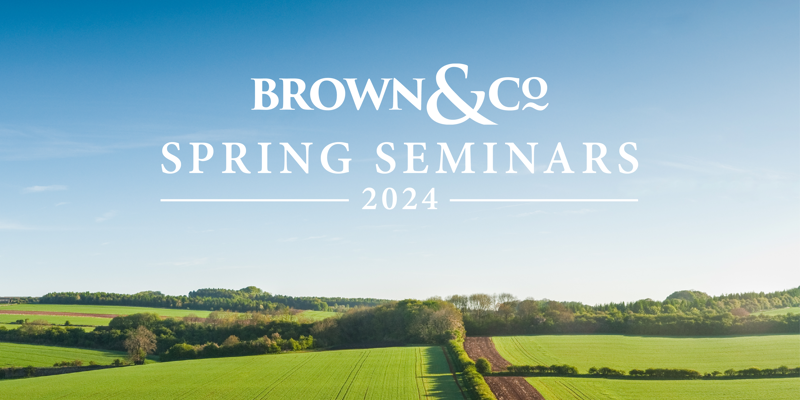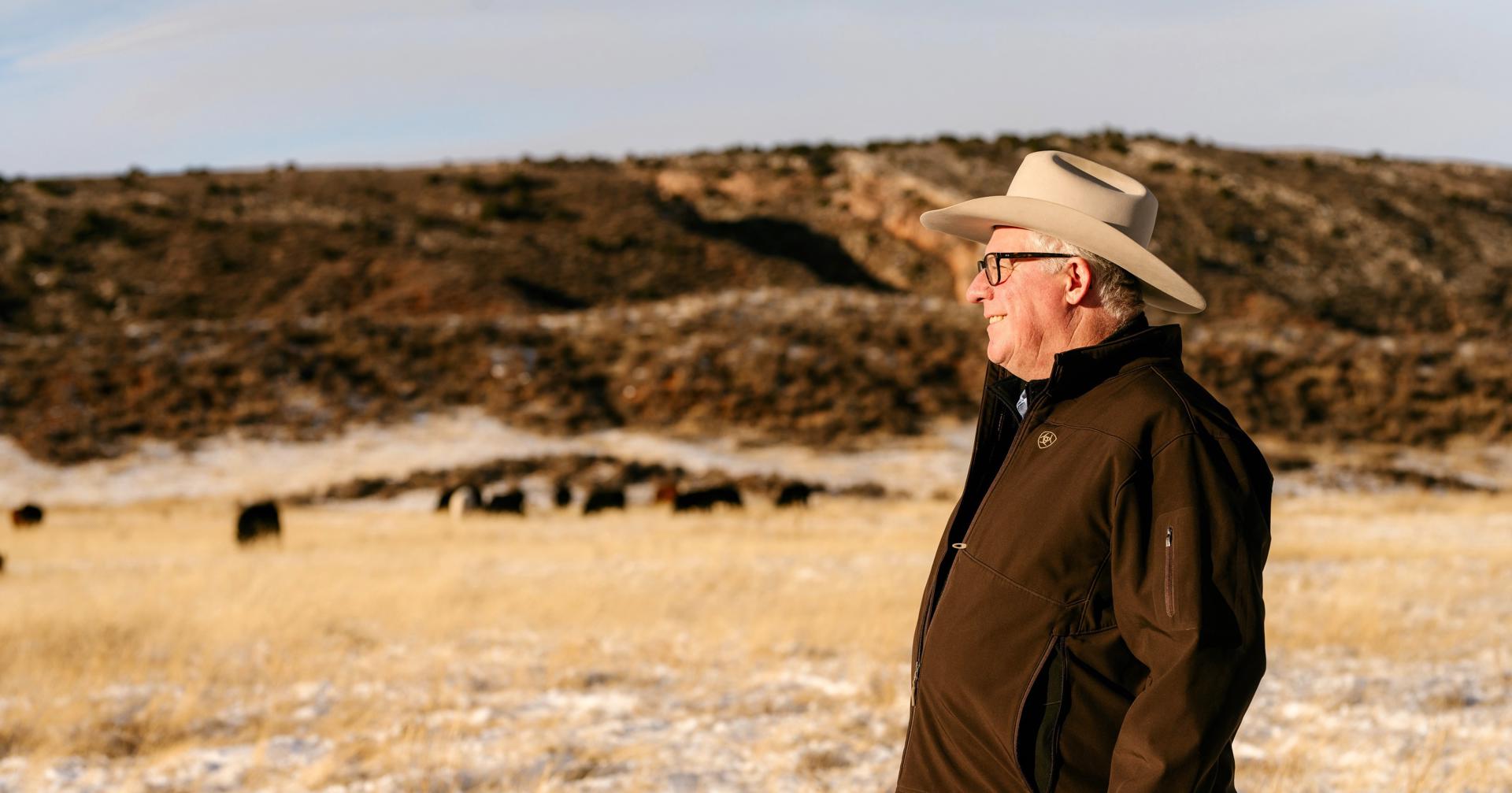
How can farmers use data to enhance sustainability?
Mon 15 Jan 2024
Lee Leachman, Chief Executive Officer of Leachman Cattle, Fort Collins, Colorado, USA, is a guest speaker at the Norfolk Farming Conference on 6th February. He spoke to our firm which is a sponsor and co-organiser of the conference, about the role data plays in his business.
Leachman Cattle markets over 2,000 bulls and 1,000 females per year with a cattle programme that offers among the most comprehensive crossbred DNA enhanced EPDs (Expected Progeny Differences) in the industry.
Mr Leachman uses data not only to aid sustainability but to increase profitability too.
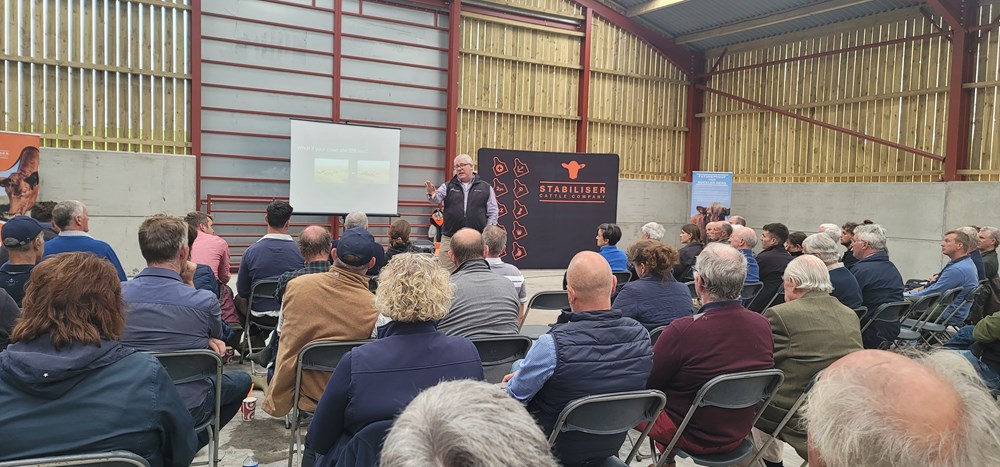
Lee Leachman speaking at a farming conference.
'Landowners have the luxury of being inefficient'
He said: “I think we see data at several levels; using it at a management level; helping us make better decisions about how to manage forages and encourage water retention in the soil.
“Also, we see data helping us on the selection side; to select animals which are going to be overall more sustainable, which produce more animal products per unit of whatever it is they are using be it energy, water or the side product of methane – and if we make productivity more efficient, we diminish the impact on the environment.
“Then there is data to teach us about different management systems and how we raise these animals’ profitability which optimises their potential given their genetics and our natural resources.
“Landowners have the luxury of being inefficient if they want. They don’t necessarily have to earn money from cattle. As I travel around the world, people often express a bit of a defeatist attitude that you can’t make much money out of cattle.
“However, the reality is that there is a big difference between utilising all the technology and the best genetics versus doing it the traditional way. The average UK suckler herd produces about 70 - 80 calves per 100 cows while other herds produce 97% weaned calves.
"Some finish males at 13 months and others finish as late as 30 months. The difference between high production and low production units in terms of carbon footprint is over 40%; so do you want to produce that much more per hectare?
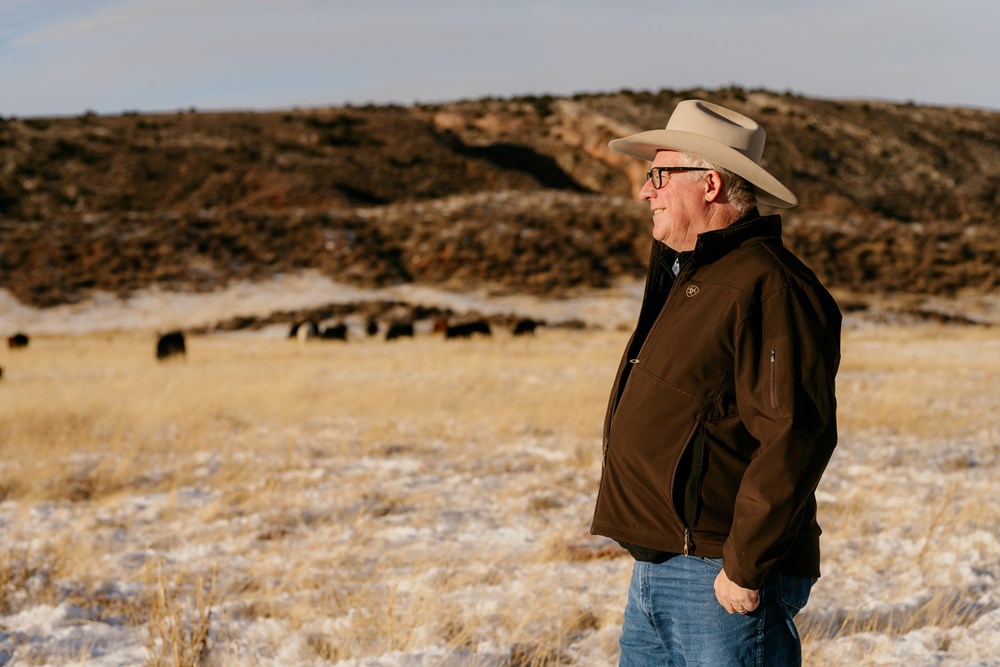
Lee Leachman.
'Do you want to optimise production and reduce your footprint?'
“Do you want to optimise production, reduce your footprint or do you just own some land and as a function of land, you have some cattle? These are very different perspectives.
“Our indexes are uniquely based on partial budgets. We look at each genetic trait and ask does it impact revenue and expense? We optimise that profitability function.
“We have been in the beef genetics business for three generations, in the early stages of our family we were selecting cattle visually – then we transformed visual selection to measuring quantitative traits then EPDs then indexes, and now indexes that use genomic enhanced EPDs.
“The technology is making a very rapid improvement at this stage, the like of which we thought was impossible. What is interesting as you travel around the world, suckler herds have all levels of this technology, some farmers are cross breeding some are not, some are using EPDs, some are not, some are still selecting based on visual appraisal.
“The reality is that as we measure these traits, there are huge differences – which affect the profitability and the sustainability of the industry."
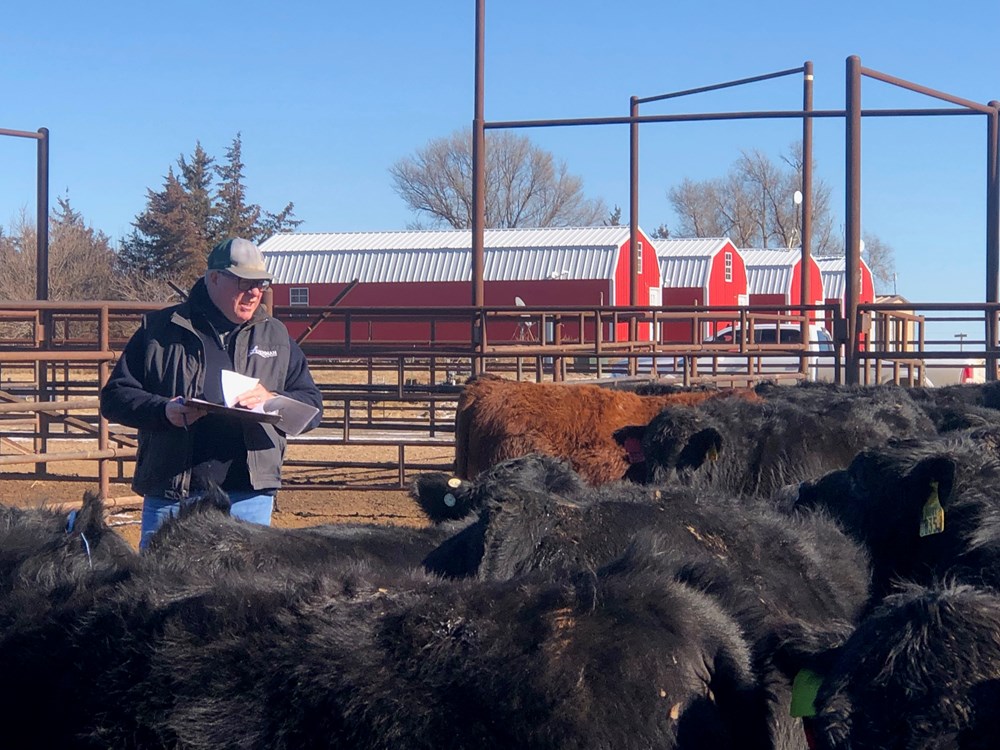
Lee Leachman at work.
‘You wouldn’t buy an automobile without a warranty’
“We are rolling out a programme in the UK which allows suckler herds to evaluate replacement females using our EPD indexes, we have collected data on 1.5million animals and that data teaches the DNA what to look for and it predicts for a UK suckler herd, which females you can keep.
“The test, offered via Zoetis, is going to cost £30 per heifer, and we recommend that you test two to decide which one you are going to keep or test three to keep two, investing somewhere between £45-60 per heifer.
“You wouldn’t buy an automobile without a warranty – because you’d want some expectation as to how long that vehicle was going to last…yet we do that with cattle all the time, we try and breed the heifer, she doesn’t, we keep her another year, she doesn’t breed again or maybe she breeds once and then will not breed back the second time – either way, that female was a very bad investment.
“The DNA allows us to have a prediction about the productivity of that female across her lifetime, it predicts udder quality, predicts lifetime fertility, there is so much information – it costs a lot to keep a female, so the idea is to keep the right ones.”
Lee Leachman is speaking virtually at the Norfolk Farming Conference on Tuesday, 6th February. Tickets cost £75 for adults, £45 for students which includes lunch and refreshments.
Keep updated
Keep up-to-date with our latest news and updates. Sign up below and we'll add you to our mailing list.
 Brown&Co
Brown&Co

